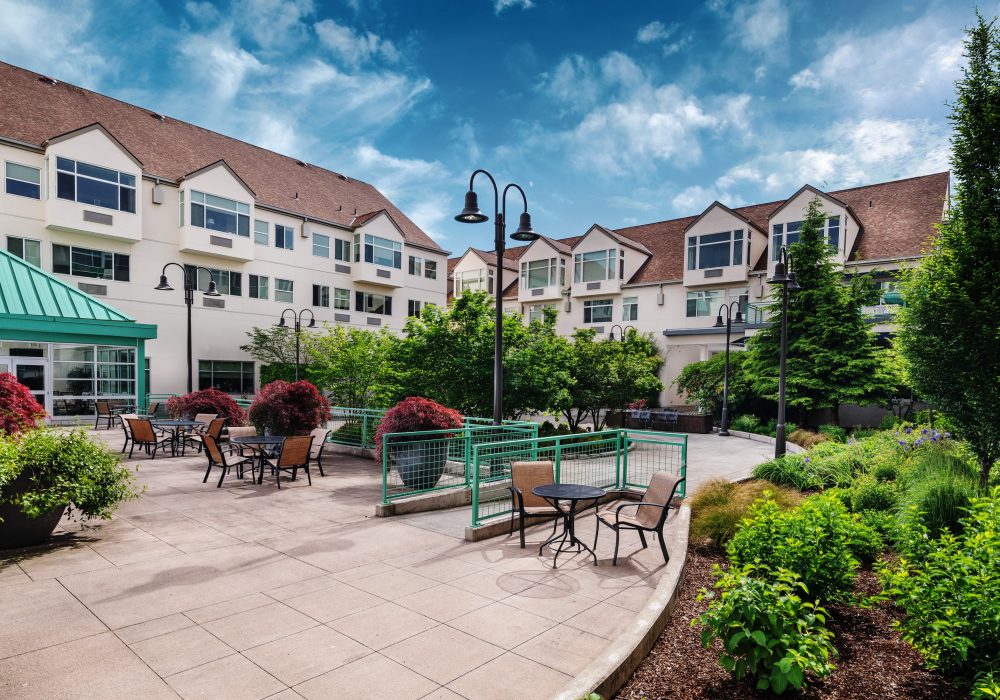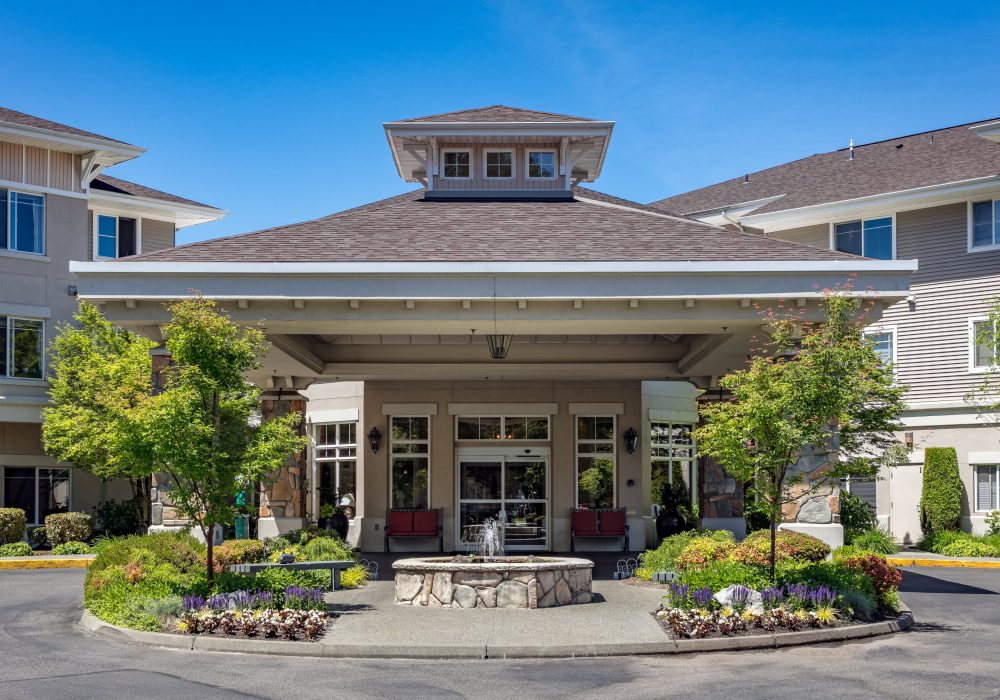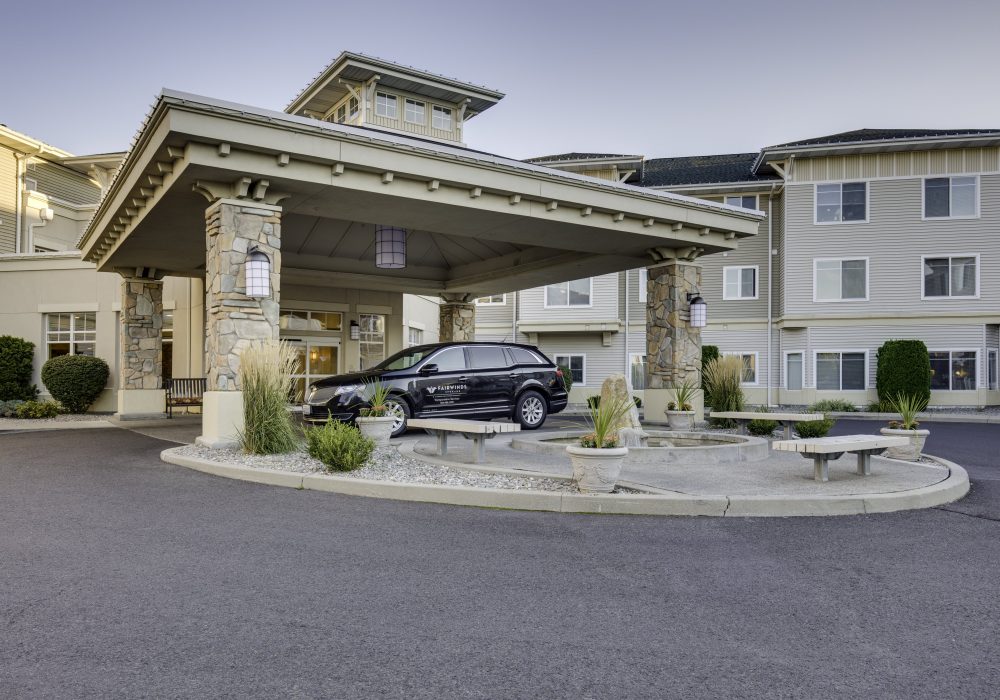
 Making the decision to move an aging parent into senior living begins with many questions. From realizing that it’s time to move to know your parent is ready and starting that conversation with them, the journey is fraught with emotional and important decisions. When should you begin talking to your parents about moving to a senior community? How will you know they are ready? Which senior community should they move to? How will the finances work out?
Making the decision to move an aging parent into senior living begins with many questions. From realizing that it’s time to move to know your parent is ready and starting that conversation with them, the journey is fraught with emotional and important decisions. When should you begin talking to your parents about moving to a senior community? How will you know they are ready? Which senior community should they move to? How will the finances work out?
Our free guide to senior housing can help you understand when it’s time to think about a move to senior living, your options for senior care, and how to have that conversation with senior loved ones.
Is it Time to Move to Senior Living?
In your next conversation or next visit home, take note of your surroundings. How are things really going at home? Here are some signs that your senior loved one may be ready to move into senior living:
- Has your loved one expressed feelings of loneliness?
- Does the idea of living among peers seem exciting and fun to your loved one?
- Is there expired or rotten food in the refrigerator?
- Does your loved one appear to have lost or gained a significant amount of weight?
- Is the house unkempt?
- Is your loved one tired of the hassles of homeownership and seeks a carefree lifestyle?
- Has the yard been maintained?
- Does your loved one miss a sense of community because friends have recently moved or passed away?
- Do you see piles of mail and unpaid bills lying around?
- Is their mail collected regularly?
- Are you concerned about the safety and security of your loved one and would appreciate around-the-clock watch?
- Is your loved one well-groomed, bathing regularly, and changing clothes daily?
- Are they becoming forgetful, forgetting to take medicines or to turn off the stove?
- Do they have unexplainable bruises or appear to have fallen?
Any of these signs could be an indicator that your loved one would enjoy a higher quality of life in a senior care community.
Experience Leisure Care Senior Living
Senior Living Options
Senior living can look very different for each person depending on their personality, retirement dreams, and care concerns. Get to know the different care options listed below to find one that will meet your lifestyle needs.
SENIOR APARTMENTS
Senior Apartments are age-restricted for adults over the age of 55. These apartments are tailored to meet the needs of seniors by featuring a limited number of stairs, in-home laundry facilities, and home maintenance. Senior apartments can relieve the burden of homeownership by eliminating any yard work or maintenance concerns while seniors live close to their peers.
INDEPENDENT LIVING
Independent living communities offer everything senior apartments do but expand upon services and offerings. Independent living communities often feature apartments with full kitchens, as well as provide full meal service in a community restaurant. They also feature a robust activities program and social calendar helping residents connect with others in the community. Additionally, our independent living communities have services and amenities that make retirement feel more like a resort-style vacation than everyday life. From book clubs and happy hours to personal concierge services and travel agents, today’s independent living communities are exciting and fun places to call home
ASSISTED LIVING
Assisted living communities help seniors who may need some assistance with activities of daily living. Experienced and friendly staff are available around-the-clock to help seniors get dressed, manage medication, provide escorts to meals, and encourage residents to enjoy every day of retirement. Assisted Living staff customize services to each resident – balancing independence with the need for assistance. Some assisted living communities are located within or near independent living communities. These “age in place” communities allow residents to stay in their homes without moving, even as needs change over time.
HOME CARE
Home care is an option for seniors who do not want to leave their homes. Your loved one would stay in their home and receive care from a caregiver who comes to them. Services offered in-home care are similar to services offered in assisted living and include assistance with dressing, meal preparation, hygiene, and medication management.
MEMORY CARE
Memory care communities provide specialized care services for seniors living with Alzheimer’s disease or another form of dementia. We recognize that dementia causes inevitable stress and anxiety in families. That’s where memory care communities come in. In memory care, seniors with Alzheimer’s or other forms of dementia can find meaning and purpose in a safe environment. Many of these communities exist within larger communities that also offer independent living and assisted living. This continuum of care means that residents can stay in the communities where they are known and loved, even if needs should change over time. Everything in a memory care community is designed to enhance the quality of life for residents with dementia and their families. The staff is specially trained to work with seniors who have dementia. Memory care teams consider every aspect of care and daily life for their residents. Even the food is prepared with residents in mind, offering dementia-friendly meals that are both nutritious and delectable to the senior palate.
NURSING HOME
A nursing home, or a skilled nursing facility (SNF), provides extensive nursing care and assistance to seniors whose needs exceed what a typical assisted living community can provide. In these communities, a nursing staff is typically available 24 hours a day to care for residents. While many residents stay in a nursing home for long-term care, some come for short-term care and rehabilitation. Services offered in a nursing home include dining services, different rehabilitative therapies following an accident or illness, and some offer memory care services.
Talking to Senior Loved Ones About Senior Care
We know it is easier to sit back and enjoy the time with your loved ones rather than have difficult conversations with family members. This is a tough conversation to have with aging parents who don’t recognize the dangers of being on their own or are hesitant to close a chapter on a lifelong home full of family memories. It’s also a tough conversation for adult children who are unsure of the future for their parents. But, it’s also necessary. And, when done correctly, it can be loving, compassionate, and encouraging.
These tips can help you prepare for a conversation that is positive, uplifting, and effective.
1. Gather siblings for a family meeting before talking to your parents. Make sure that all parties agree the move to senior housing is necessary. If all the family members feel heard and come to a collective decision, it’s more likely your parents will follow your advice. Also, the more helping hands you have in moving and downsizing, the better.
2. When the family is ready, set up a meeting with your parents. Tell them how much you care for them and why you think senior living would be a smart move to make now. Focus on the amenities of senior living, including housekeeping, no yard work, and prepared meals rather than their shortfallings in home ownership.
3. Put yourself in their shoes. The fact is that one day your very own children may be having this same conversation with you. Think about how you would want to be spoken to in this situation and choose to be respectful, loving, and not judgmental.
4. Make it clear that you are their biggest advocate and a move to a senior community does not mean you will stop visiting, calling, or caring.
5. Encourage your parents to do their own research and find a community that best suits their needs. They should feel in control of their decision and that they are supported by their children, not being ordered to make a move they are uncomfortable making.
6. Go to leisurecare.com and show your parents what today’s senior living communities look like. They may look very different than what your parents expect.
7. Walk through financial options together. A move into a senior living community may feel out of financial reach for some seniors. Explain the research you’ve done on financing senior care.
8. Create an action plan together. Call several communities to set up tours. Go with your parents on the tours to show support and help them find a community where they will thrive and enjoy life, every day.
Do you think it’s time for a senior loved one to consider senior housing? You’re always invited to stop by any of our communities for a test drive. We promise you will find fun people, exceptional care, and extensive amenities. A move into a Leisure Care community is exciting. It’s an adventure waiting to happen. Our staff is not only well-trained to provide exceptional care services; they are committed to delivering five-star fun, every single day. Our residents like to say that life at one of our communities feels more like a resort-style vacation than retirement. We like to say that your retirement shouldn’t feel like anything else.
Find a Leisure Care Community
Better with age, exceptional with us! Come and see how Leisure Care communities are helping seniors rediscover (and sometimes reinvent) themselves.





